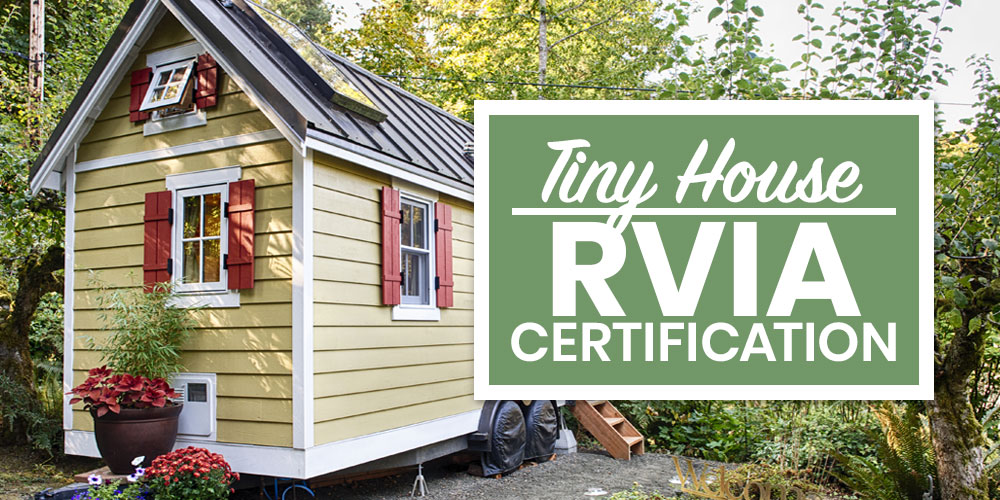
NAVIGATION
Deciding if you need an RVIA certified tiny house can be a challenge as a homeowner. If you’re in a position where living in a tiny home has gone from dream to reality, you’re likely ready to get on the road and travel, and not think twice about building code red tape.
I’ve been where you are! I wish I’d had someone earlier on to give me insights I have now. That way, I would’ve known RVIA isn’t really worth the hassle from the get go.
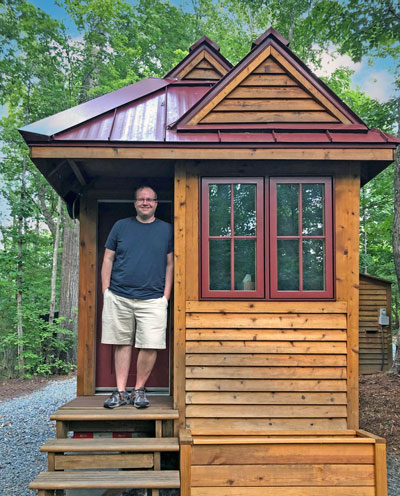
Hi, I’m Ryan
I live full time in my tiny house. I learned pretty early on how important it is to make sure my tiny home is up to code on my own and that the value of certifications like RVIA should be taken with a grain of salt.

What Are RVIA Certified Tiny Homes?

In a nutshell, RVIA certified tiny houses are tiny homes that have gone through the inspection and certification process provided by the Recreational Vehicle Industry Association (RVIA).
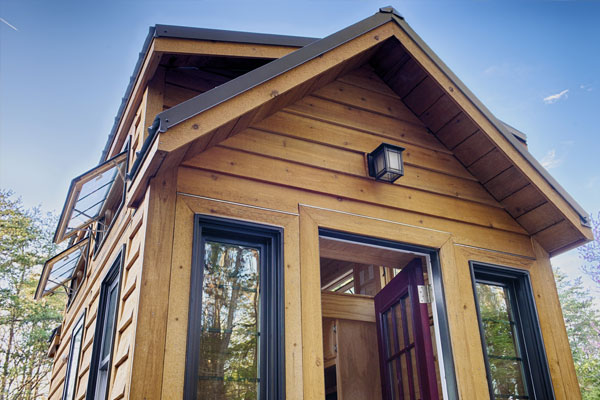 As a tiny homeowner, you basically have two options. You can certify your THOW through an external middle party like RVIA or NOAH, or you can access your local building codes and check the vehicle on your own.
As a tiny homeowner, you basically have two options. You can certify your THOW through an external middle party like RVIA or NOAH, or you can access your local building codes and check the vehicle on your own.
All that an RVIA certified tiny house actually means is that your tiny home has been given a stamp of approval from RVIA. It signifies that the vehicle meets electrical, plumbing, heating, construction, and fire safety requirements necessary for a mobile vehicle.
What Are The RVIA Certification Requirements?
When it comes down to it, RVIA certifications requirements basically match the national safety requirements for houses and RVs put forth by the Standards Department Inspection Program.
RVIA adopts several integral safety codes. So, a tiny home that’s officially RVIA certified will be evaluated under these guidelines. However, it’s important to note that RVIA is NOT mandatory. It’s an opt-in program only and is not required by law.
Does My Tiny House Need An RVIA Certification?

Getting an RVIA certification is NOT necessary for a tiny house. Honestly, I wouldn’t recommend it to most tiny home dwellers, particularly those that live in or near any city limits. After multiple decades in the tiny house realm, I can’t say that I see certifying a tiny house through RVIA as very wise.
At large, I think RVIA is a bit of a monopolistic venture. It’s mostly run by manufacturers and industry giants, and it primarily serves as an unnecessary middleman and money grab. While RVIA has some solid safety requirements connected to it, these can be met without obtaining the certification and jumping through additional hoops.
Will An RVIA Limit My Freedom As A Tiny Homeowner?
Being RVIA certified can limit your freedom as someone who wants to live in a tiny house full-time. When it comes to the building code world, it matters how your tiny house is classified in the eyes of the law. This can change depending on the type of tiny home you live in, your tiny house size, where you live, or the certifications your house has.
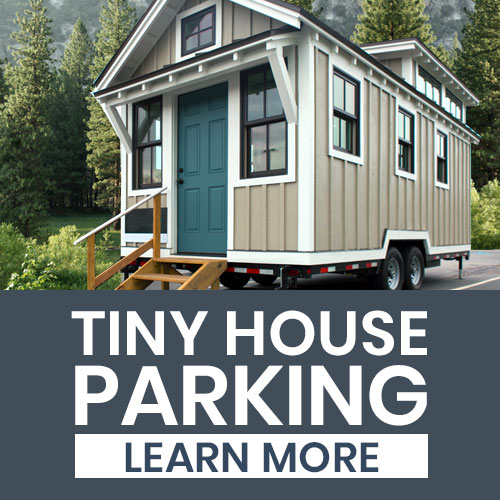 If you decide to get your house certified as an RVIA tiny home, your house becomes an RV in the eyes of the city building code enforcement. This can limit your freedom and ability to live in your tiny house long term.
If you decide to get your house certified as an RVIA tiny home, your house becomes an RV in the eyes of the city building code enforcement. This can limit your freedom and ability to live in your tiny house long term.
As an RV owner, all transportation codes and laws must be applied to your tiny house. Typically, this means you aren’t legally allowed to live in the tiny house in cities and townships because RVs are classified as temporary or seasonal dwellings. It’s illegal to live in these dwellings as your permanent residence.
I live in Charlotte, North Carolina, and I’m fully aware that if my tiny home was certified as an RV, it wouldn’t be allowed within 100 miles of the city as a full-time dwelling. If I lived in a different city or state, though, the legal difference between a recreational vehicle and a traditional dwelling may be thinner or the laws may be more flexible.
RVIA Certified Tiny Homes: Pros And Cons

To play devil’s advocate, there are a lot of tiny homeowners who like the idea of getting their house RVIA certified. I’m not trying to be the cynic of the century here, and I know there’s value in bureaucracy. However, it’s hard to see the value in using a third party that will just limit your freedom in design, location, and mobility when you just don’t have to.
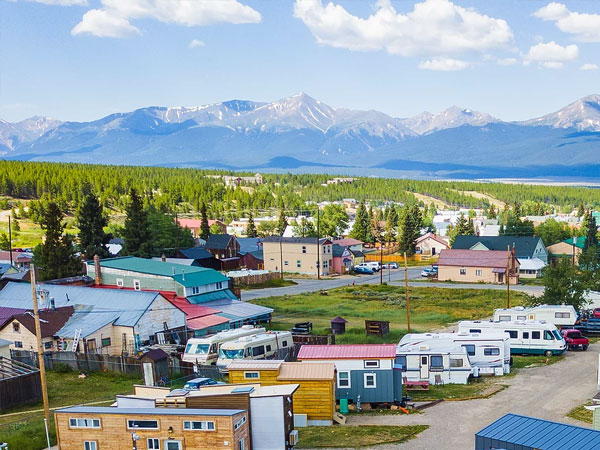 I think the appeal with RVIA is that homeowners feel fully in the clear from legal repercussions when it comes to code and safety, and are able to have greater peace of mind when holding the official RVIA certificate. Security is always a good feeling!
I think the appeal with RVIA is that homeowners feel fully in the clear from legal repercussions when it comes to code and safety, and are able to have greater peace of mind when holding the official RVIA certificate. Security is always a good feeling!
However, my opinion stands that you don’t need to go through the whole production of RVIA if you’re able to keep your tiny house up to code on your own by thoroughly learning and abiding by the building codes in your respective municipality.
Using RVIA certainly has its pros and cons, but it remains up for debate amongst tiny homeowners.
Pros and Cons Of A RVIA Certified Tiny House
Pros
- Peace of mind with official safety check
- Easier to insure and finance RVIA certified house
- More parking options (RV parks)
- Easier to sell with certificate
Cons
- Restricts full-time living freedom
- More expensive
- Only checks specific safety features
- More leg work and hoops to jump through
RVIA Verses NOAH: Which One Is Better For A Tiny House?

NOAH is kind of like RVIA’s building code cousin. In a lot of ways, RVIA and NOAH are almost identical organizations. Both RVIA and NOAH are national, third-party vehicle investigation services with their own certification process and standards.
Both RVIA and NOAH automatically permit your tiny house on wheels in recognized RV parks and make your vehicle easier to insure. However, they do have some core differences.
RVIA Verses NOAH
RVIA
- Harder to obtain for DIY tiny house builders
- Standard safety requirements only
- Less expensive
- Faster inspection time
NOAH
- Easier to obtain for DIY tiny house builders
- Includes eco-conscious requirements
- More expensive
- Longer inspection time
RVIA Certified Tiny House Frequently Asked Questions

When trying to decide if getting an RVIA certification for your tiny house is right for you, there are a few questions you’ll want to address when it comes to your lifestyle, where you live, and the details of your specific THOW.
Are RVIA Certifications Different Where You Live?
The actual RVIA certification won’t be different depending on where you live, because RVIA itself is a national association — the codes RVIA uses will be the same everywhere. What will be different is the way your tiny house on wheels is treated based on the local building laws and safety codes in your respective locale.
What Does RVIA Certification Cost?
As of 2022, RVIA sticker prices start at $79 and go up from there. There is only one RVIA seal, so make sure if you do buy the sticker that it is the real deal and not a fraud!
How Can I Check My THOW Safety Without RVIA?
Many states use the ICC (International Code Council) to create their safety laws, but not all states use it. Some states have their own individual codes, or use the ICC as a base to expand on for their state. Whatever the case may be, you’ll need to decipher what your state allows and make sure your THOW measures up to those codes on your own.
At the end of the day, I stand my ground in believing that RVIA is ultimately a money grab, disguised as a seemingly necessary certification for tiny housers who don’t know better.
While RVIA can work well for tiny house nomads and RV adventurers, for most tiny homeowners, it places you between a rock and a hard place, limiting your freedom and mobility.
Your Turn!
- Will your tiny home be RVIA certified? Why or why not?
- Is it better for your lifestyle to certify your tiny home as a house or RV?



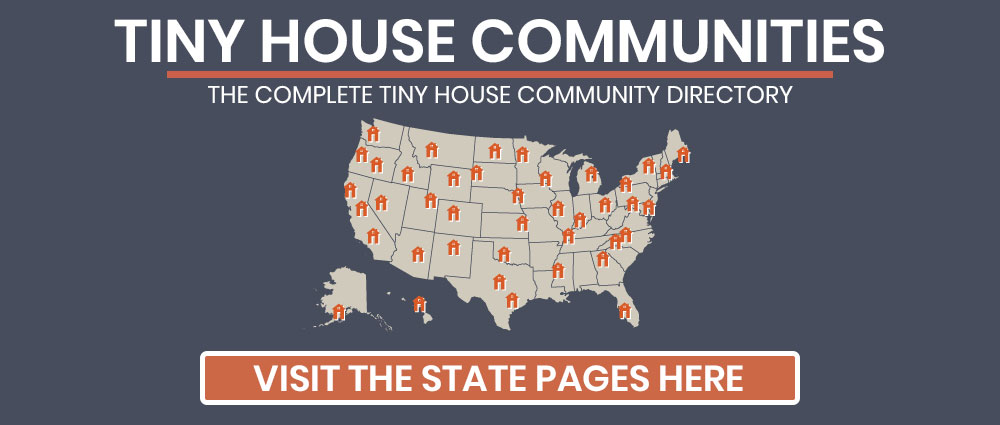
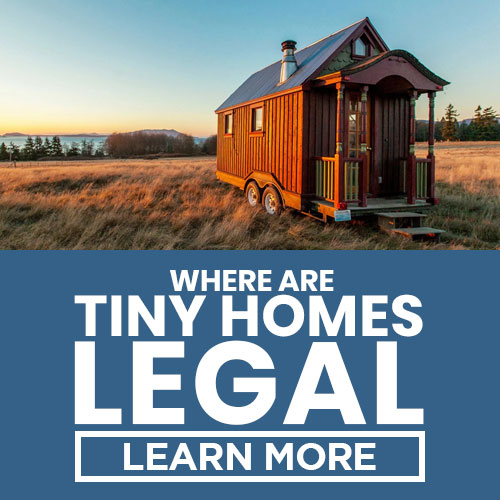
If your Tiny is on wheels, how did Charlotte, NC allow you to live in it full-time. I pulled mine in my own backyard in downtown Winston-Salem and was told in less than 24 hours by the city that I could not leave it there and must move it. Only when I told them it was NOAH certified, did they let me leave it there…but warned me that either way, no one could live, or even stay overnight in it legally. I finally moved it to a Tiny Home community near Asheville so I could enjoy the home for myself or rent to others.
Probably because, if your tiny home was considered an RV, then the town ordinances didn’t allow it for permanent occupancy.
If it had been HUD certified, it would’ve been treated like a manufactured home, in which case,town might’ve considered it an unpermitted ADU.
With out these certs does it hinder your. Ability to move the tiny house on the roads